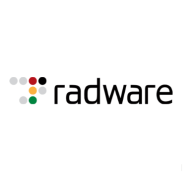


Radware Cloud WAF Service and FortiWeb Web Application Firewall compete in the web application firewall (WAF) category. Radware Cloud WAF Service appears to have the upper hand with its advanced Layer 7 protection and user-friendly interface, providing a stronger comprehensive threat detection capability.
Features: Radware Cloud WAF Service offers Layer 7 protection, scalability, and a user-friendly interface. It includes bot management, DDoS protection, and API discovery integrated with CDN services, providing value with threat detection without false positives. FortiWeb Web Application Firewall provides robust security features with machine learning for threat detection and integrates with Fortinet FortiGate. It features URL filtering, DNS protection, and straightforward configuration.
Room for Improvement: Radware Cloud WAF Service could improve integration and visibility, with needs for better analytics, reporting capabilities, and API protection. FortiWeb WAF needs enhancements in signature updates and scalability, along with additional enterprise-level features and a better user interface. Both need more responsive technical support and expanded documentation for ease of use.
Ease of Deployment and Customer Service: Radware Cloud WAF Service is tailored for public cloud deployment with good support and quick response times. FortiWeb Web Application Firewall is suited for on-premises and hybrid cloud environments, excelling in integration with Fortinet infrastructure. Radware focuses on quick deployment and robust support, while FortiWeb may require more technical expertise.
Pricing and ROI: Radware Cloud WAF Service is priced higher but offers modular options for services like DDoS and bot protection. Its ROI is justified by reduced false positives and operational savings. FortiWeb Web Application Firewall is cost-effective for small and medium businesses, providing competitive pricing and various licensing options, though some view it as slightly expensive. Both solutions emphasize value from improved security and operational efficiency.
WordPress security can be tricky, and that's where Cloudflare can be absolutely helpful for small businesses.
For the small project I was working on, using the basic tier provided a huge improvement at zero cost.
In terms of return on investment with Cloudflare, it costs my time to set them up, but basically once they're set up, it's done.
I wouldn't be able to give a number, but Radware Cloud WAF does save time for our staff due to the automation and excellent detection, which is invaluable.
With our on-prem solution, we spent a lot of time on maintenance tasks, OS updates, and ensuring appliances ran smoothly, but with Cloud WAF, all that is managed by the cloud team, allowing us to focus on alert analysis.
We get major insights from the analytics rules and dashboards, allowing us to pinpoint main issues.
This would help us address issues promptly, especially during unforeseen events like DDoS attacks.
Cloudflare does not offer hands-on technical support to fix customer problems but rather a self-service model.
The key factor is the language in which the support is offered, which, in this case, is in Thai.
Their support is truly exceptional when I compare it with similar large-sized companies.
The back-end development team is available, and if any issue arises, they will help us immediately by providing solutions when contacted.
On a scale from one to ten, I would rate the technical support that Radware provides for Cloud WAF Service a perfect ten.
I would give the Radware technical support a ten out of ten. They are definitely outstanding.
The support provided by Radware's Emergency Response Team is excellent.
It is a SaaS tool, but the fact that they have workloads deployed across the world proves that it is a highly scalable tool.
The tool offers very good performance, even during high-traffic periods.
I rate the solution’s scalability an eight out of ten.
The scalability of Radware Cloud WAF Service rates as a perfect ten out of ten, as we haven't encountered any scaling issues.
The scalability of the Radware Cloud WAF Service deserves a full ten, as it is definitely scalable.
Since it's a Cloud WAF, it is always scalable.
For DDoS protection, I would not recommend Cloudflare.
I rate the solution’s stability an eight out of ten.
The service is very stable with no impacts during high-traffic periods.
I have never encountered downtime, maintenance-related issues, or latency.
The stability of Radware Cloud WAF Service is excellent, and I would rate it as a ten.
The stability of Radware Cloud WAF Service is perfect; I would rate it a ten out of ten.
There's a need for improvement in areas like AI-based DDoS attacks and Layer 7 WAF features.
Despite these challenges, overall, Cloudflare remains the preferred solution compared to Azure, AWS CloudFront, and Google Cloud Armor.
The timing aspect can lead to it being considered overpriced. This is a particular concern we have with Cloudflare, as they may struggle with accurately detecting the client.
If the GUI includes notifications and improved logging capabilities that allow us to see traffic and store logs for six months, that would be very helpful.
If some of my customers want to migrate from F5 to Fortinet Firewall, or the Fortinet WAF solution, there are some migration issues.
It would be beneficial if we could perform POST requests and integrate our applications more effectively.
The documentation is not up to par, as while the platform's system is robust, the documentation, particularly for API integration, could be more developer-friendly with real-world use cases.
Improving dashboard capabilities to provide this information clearly for management is crucial.
That's where Cloudflare shines for smaller businesses – it's ten times cheaper than Akamai.
I find it to be cheap.
I think they should consider reevaluating the pricing for support, as it can be quite high.
If the customer has multiple websites, the price reduces automatically because it depends on the number only.
Pricing could be more competitive, especially for smaller customers.
I find Radware Cloud WAF to be a quite expensive product compared to others.
The pricing is not cheap; it is expensive, but it is effective.
The most valuable features of the solution are performance and security.
Techniques like minification and image compression reduce the size of assets, leading to better performance and faster user load times.
The solution has been able to compare it to the market, and I think the product has taken great strides in automating quite a bit of things, and they use a lot of AI.
Fortinet's pricing is way more competitive than Cisco or Palo Alto.
The features of FortiWeb Web Application Firewall (WAF) that have proven most effective in protecting web applications include web filtering, DDoS protection, geo-location blocking, and blocking SQL injection attacks.
The most important aspect of Radware Cloud WAF is that it is over the cloud, offering a comprehensive solution that includes WAF, API protection, bots, and Layer 7 DDoS.
It has features such as API security that protect against advanced attacks, including business logic attacks.
The automated analytics for looking at events in Radware Cloud WAF Service are working for us; the automatic event correlation is very beneficial to analyze how the alerts and events occur and visualize the patterns of network traffic and other traffic going in and out from the application via Radware Cloud WAF Service.



| Company Size | Count |
|---|---|
| Small Business | 46 |
| Midsize Enterprise | 8 |
| Large Enterprise | 25 |
| Company Size | Count |
|---|---|
| Small Business | 13 |
| Midsize Enterprise | 7 |
| Large Enterprise | 4 |
| Company Size | Count |
|---|---|
| Small Business | 9 |
| Midsize Enterprise | 10 |
| Large Enterprise | 37 |
Cloudflare is a highly-regarded Content Delivery Network (CDN) and a Distributed Denial-of-Service (DDoS) protection solution. The robust global connectivity cloud platform that is Cloudflare ensures users are able to connect to the Internet quickly, securely, and reliably. Cloudflare is one of the world's largest networks in the marketplace today. Using Cloudflare, businesses, educational entities, NGOs, vloggers, bloggers, and anyone else with an internet presence can experience more secure, faster websites and applications.
Currently, there are millions of Internet locations on Cloudflare, and the Cloudflare network
continues to grow every day by the thousands. The solution is able to fulfill the requests for
millions of websites seamlessly and serves on average 45 million HTTP requests per second.
Cloudflare has safe, secure data centers in close to 300 cities worldwide to ensure every
client request is filled as quickly as possible. It is Cloudflare’s edge network that makes this
possible by keeping content and other services as close to each client as possible, so the
information requests are always only seconds away.
Many organizations that work in democracy, civil society, human rights, or the arts are able to
access Cloudflare's highest levels of protection for free via Project Galileo. Additionally, official
election websites can be secured from hacking and fraud through Cloudflare’s Project
Athenian, also at no additional cost.
Cloudflare can also help organizations of all sizes develop a robust zero-trust strategy to
ensure the highest levels of productivity and profitability. Employees, stakeholders, and end users have a greater level of satisfaction and overall improved user experience, which can, in
turn, result in higher revenues and overall ROI. Zero-trust and BYOD (bring your own device)
access ensure end users and employees always have the best resources and technology
available to them at all times.
Cloudflare benefits
Cloudflare has many benefits. Some of its most valuable benefits include:
- Faster load times
- Robust DNS security
- Intuitive cloud Web Application Firewall (WAF)
- Free universal SSL
- Image enhancement
- Automatic browser caching
- Next-generation cloud load balancer
- Accelerated Mobile Pages (AMP)
- Rate limiting
- Minification
- Zero-trust capabilities
- Cost-effective
- Reduced carbon footprint
Reviews from real users
“Many websites require an SSL certificate because they sell stuff and want SSL. Cloudflare
comes with an SSL certificate built in. It's automatic. You sign yourself up for Cloudflare, and
an SSL certificate automatically protects your website. If you have a connection between your
website and your host, the server, Cloudflare, and the host, you don't necessarily need a
certificate.” Spencer M., Owner at Tech Exchange
“What I like best about Cloudflare is that my company can use it to trace and manage
applications and monitor traffic. The solution tells you if there's a spike in traffic. Cloudflare
also sends you a link to check your equipment and deployment and track it through peering,
so it's a valuable tool.” Daniel P., Network Engineer at Ufinet
“The most valuable feature of Cloudflare is the GUI. You are able to control the solution very
well through the interface. There is a lot of functionality that is embedded in the service.” PeerSpot user, Competence Center Manager at a tech services company
FortiWeb Web Application Firewall uses machine learning to reduce false positives, detects zero-day threats, and blocks DDoS attacks. It integrates with existing security infrastructure and provides SD-WAN capabilities, offering protection for websites and mobile applications.
FortiWeb WAF secures web applications with features like machine learning-based threat detection, DDoS attack mitigation, and robust integration capabilities. Additionally, it manages HTTP traffic and offers SD-WAN functionalities. Built for GDPR compliance, it supports API protection and bot mitigation while enabling secure mobile and cloud application access. Users implement it across multi-cloud environments and in data centers offering advanced security and compliance, including PCI DSS. Despite feature-rich abilities, users seek enhanced database updates, better enterprise integration, and more accessible analytics. Improvements in support response, documentation, and scalability are desired to strengthen its robust security offering.
What are the key features of FortiWeb WAF?FortiWeb WAF is widely implemented in data centers and financial industries, ensuring robust protection for web applications and sites. It supports multi-cloud environments on platforms like AWS and Azure, providing secure access while meeting compliance standards. Users benefit from enhanced application security and load balancing capabilities, making it a preferred choice in financial sectors that require VPN and SD-WAN consistency.
Radware’s Cloud WAF provides enterprise-grade, continuously adaptive web application security protection. Based on Radware’s ICSA Labs certified, market-leading web application firewall, it provides full coverage of OWASP Top-10 threats and zero-day attacks, while implementing both negative and positive web application security models to automatically adapt protections to evolving threats and protected assets.
Radware’s Cloud WAF offers full web security protection including OWASP Top-10 coverage, advanced attack protection and 0-day attack protection by implementing both negative and positive web application security models. It provides organizations “frictionless” application protection by automatically detecting and protecting new web applications as they are added to the network through automatic policy generation technology.
We monitor all Web Application Firewall (WAF) reviews to prevent fraudulent reviews and keep review quality high. We do not post reviews by company employees or direct competitors. We validate each review for authenticity via cross-reference with LinkedIn, and personal follow-up with the reviewer when necessary.